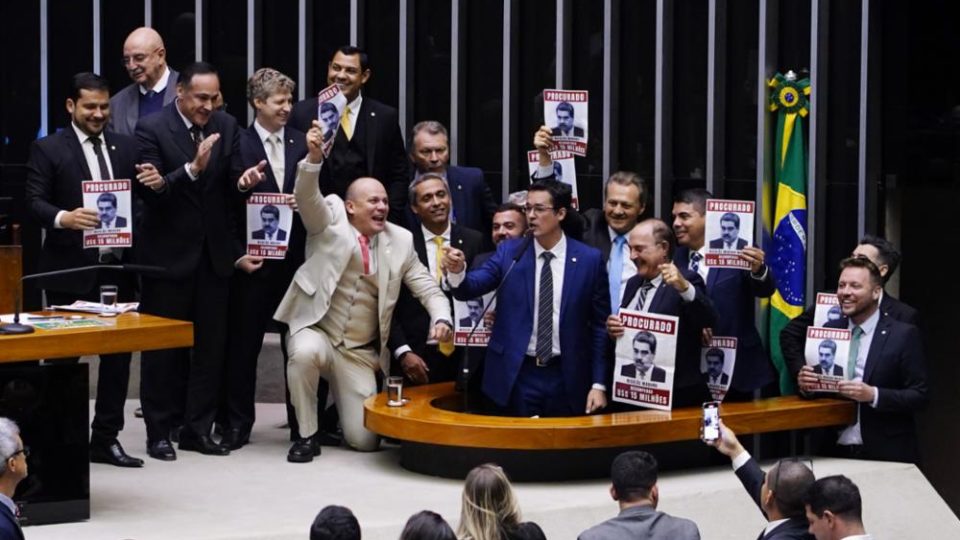By Marcelo Figueiredo*
(Opinion) In the book “Ficha Limpa, Impacto nos tribunals: tensões e confronts” (Clean Record, Impact on tribunals: tensions and confrontations), where the authors analyze the incidence of the Clean Record Law, 455 decisions of the Regional Electoral Court (TRE-SP) were analyzed for appeals on requests for registration of candidates or impugnations, and no case was found that originated in Item “q”, alluding to magistrates and prosecutors retired under obligation, as occurred in the case of Deltan Dallagnol.
In the same way, when 43 decisions of the Superior Electoral Court (TSE) were analyzed, none had the same outcome as the rumored Deltan case.

The Clean Record Law (Lei Ficha Limpa) published in 2010 amended Complementary Law 64 of May 18, 1990, which establishes, according to paragraph 9 of Article 14 of the Federal Constitution, cases of ineligibility, deadlines for termination, and other provisions, to include cases of ineligibility aimed at protecting administrative integrity and morality in the exercise of office.
No legal provision prevented the then deputy Deltan Dallagnol from resigning precisely because there was no administrative disciplinary process that prevented his candidacy.
Under this law, in addition to the traditional cases of ineligibility hitherto provided for in Article 1 of Complementary Law 64/90, the restriction was extended to cover, among others, the situation of agents who are sentenced to the suspension of political rights in a final or conclusive decision or handed down by a collegiate judicial body, for intentional administrative misconduct leading to injury to public assets and illicit enrichment, from the time of the conviction or the final and unappealable decision until eight (8) years have elapsed after the sentence has been served (Article 1, l, of LC 64/90, as amended by LC 135/2010).
Since its issue, the Clean Record Law was extremely questioned and discussed.
First, whether it violated the principle of presumption of innocence by anticipating ineligibility and from what moment it should be applied.
The Federal Supreme Court recognized the matter’s general repercussion for the admissibility of other appeals.
Three actions also followed in the STF.
As a result, the Court held that:
a) the cause of ineligibility is not a sanction and may be applied regardless of the final and unappealable decision that generated it;
b) the law applies immediately;
c) ineligibility may exist, including for acts or convictions practiced before and after the Ficha Limpa Law was in force.
Particularly, I was also shocked by the unanimous decision of the Superior Electoral Court.
On this point, I follow the opinion of Justice Marco Aurélio, now retired.
I went to check the rumored process and was even more perplexed because nothing led to the conclusion reached by the illustrious rapporteur.
In the first place, the passive electoral capacity depends on the fulfillment of positive assumptions – the eligibility conditions – and negative assumptions – the non-incidence of a cause of ineligibility.
Precisely because they limit passive citizenship and prevent the citizen from participating in political-state management, the causes of ineligibility must be interpreted restrictively and not broadly, as is the case law of the TSE.
The doctrine is also firm in this direction.
I share the understanding of Marcelo Ramos Peregrino Ferreira, a monograph on the subject (O Controle da Convencionalidade da Ficha Limpa: Direitos Políticos e Inelegibilidades).
As the election attorney, Mônica Dorotéa Bora, correctly pointed out, in the matter of ineligibilities, the strictness of the constitutional taxability is in force.
The TSE has already established that the restrictions that generate ineligibilities are of strict legality, and an extensive interpretation is forbidden.
The neuralgic point of the Deltan Dallagnol case lies in the erroneous reading of the TSE in assuming that the existence of disciplinary proceedings before the CNMP (investigative and preliminary) could be compared to an administrative disciplinary proceeding.
However, the most curious thing is that the same rapporteur recognized that there was no disciplinary administrative proceeding in progress, and, despite that, the conclusion of fraud against the law was reached.
I understand that no legal rule prevented the then deputy Deltan Dallagnol from resigning precisely because there was no administrative disciplinary process that prevented his candidacy.
The reasoning of the rapporteur and those who followed him does not deserve any legal support in law.
Fraud or bad faith are not assumed in law but must be proved.
Assuming that investigative and preliminary correctional procedures would become accusatory corrective procedures and administrative disciplinary proceedings is empty and dangerous futurology.
Or as the experienced electoral prosecutor Paulo Gustavo Gonet Branco stated, “It is irrelevant to consider the motivation for the request for dismissal before the end of the procedures distinct from administrative disciplinary proceedings”.
There is not the slightest doubt. Daltan Dallagnol’s mandate annulment was arbitrary and unfair.
*Marcelo Figueiredo, lawyer and legal consultant, is a professor in the undergraduate and graduate Constitutional Law and Comparative Constitutional Law courses at PUC-SP.
With information from Gazeta do Povo
News Brazil, English news Brazil, Brazilian politics

